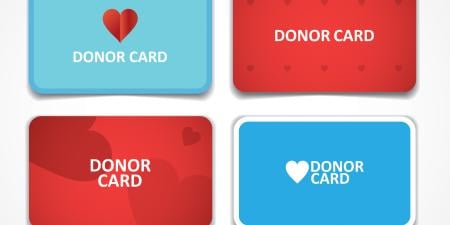"We're just going to let him lie there for about 20 minutes," the X-ray technician says, hanging up her lead robe. "Maybe he'll sleep the whole time."
I nod vacantly, realizing that she does this all day, every day. Our hell is just her job.
"You can stay in here with him," she says, walking out.
I look down at Ryan asleep on a wooden board that turns like a rotisserie. His arms are taped together over his head. He clutches his beloved and tattered T-shirt in his hands. His head is taped down and there's a washcloth underneath the tape to protect his skin. He is covered with hospital-issue baby blankets and taped across his midsection and ankles.
"The first moment I saw you was the best moment of my life, Ryan," I whisper to him. The gentle hum of the machinery in the room soothes me, but the swiveling stool I'm sitting on hurts my back. I've been sleeping on a vinyl recliner in a hospital room for 9 days--everything hurts. I look up at the TV screen above our heads. On it is a picture, an image frozen in time. The title of the picture, decorating the top left corner of the screen, is:
Poirier, Ryan
03/29/01
UGI Illeal
11:27
Duke Children's Hospital
The image captured on March 29th at 11:27 is the convoluted, loopy maze of Ryan's small intestine. I stare hard at the screen, once again amazed at the opportunity to look voyeuristically into someone's body, as I felt when Ryan was the size of a peanut and the ultrasound confirmed his existence. I can see where the barium has moved through his stomach and I can see the thin trickle as it struggles to move past the duodenal restriction. It's still moving through him as I look back and forth from the screen to his sleeping face, but the picture has frozen that moment of labored digestion.
Ryan will be 2 years old in 4 days. I have cancelled the birthday party that we planned because I don't know if he'll be out of the hospital. I stare at the TV screen and imagine that the picture is Ryan at his birthday party, surrounded by green grass and smiling in the sun. There are balloons too. Ryan and I breathe quietly in the colorless, odorless room that is so far away from grass, balloons, and birthday cake. It's just us, left alone with our photographic souvenir of what hurts Ryan. I stare up at the screen and initiate a telepathic dialogue with the inflamed and troublesome duodenum. "Why are you so angry?" I whisper to the swollen mass that is both on the screen and in my son. I imagine myself crawling inside of his stomach, sliding gently down into the area of inflammation and soothing it with pacifying words.
I wonder if I can speak the right language. Will it respond to medical language? Religious or philosophical language? Will it understand the shameless pleading of a frightened mother? I look away from the screen, defeated and exhausted from the effort of trying to convince a duodenum to heal itself. I fall back on the familiar lamentations of self-pity. Why do I even have to do this? Why can't I be a mother who never thinks about the intricacies of her child's duodenum? Why am I not looking at a photograph in an album?
Because it's Ryan.
Ryan will always face medical challenges like this one. His one in a million diagnosis of chronic granulomatous disease will bring us to the hospital often, pondering massy collections of cells that follow an infection. For the rest of his life, he will be subjected to intravenous antibiotic and antifungal medication to kill opportunistic infections. Ryan's immunologist has assured me that many CGD patients enjoy long stretches of good health--that they can go several years without a major infection. I try to see past the walls of the cold room to those better times, I hold onto her words for hope. I have developed a deep and lasting affection for the global medical community. I am personally grateful for their continued efforts to improve procedures and medications, and I have come to think of them as distant family. Even the X-ray tech, who is probably enjoying lunch in the cafeteria right now--maybe a chicken sandwich, maybe meatloaf.
Still, I want to sleep in my own bed and point a camera at the smiling face of my two-year-old boy. I want to think about God and life and love in less urgent ways. I want to feel safe. When I was young, I laughed at the idea of safety, wishing instead for unpredictability and adventure. Unpredictability seemed so much easier then and everything was hypothetical. Then, I couldn't see through people and love was just an idea and not a tiny body strapped to a wooden board. I want to get out of this room and go back to our familiar hospital room where at least there is a window to remind me of sun and sky, green grass and red birthday balloons.



